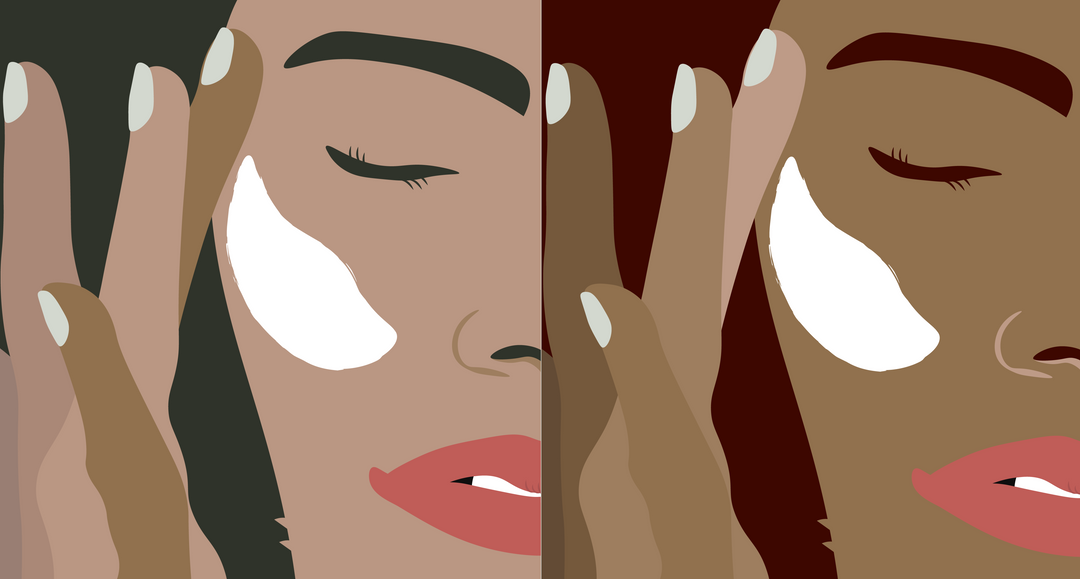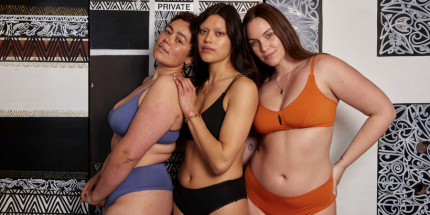Decolonising Sex with Tiana Griffin
I was raised in the islands, in a strict religious home. No kissing, no touching, no boyfriends, no birds and the bees, and definitely no sex before marriage, there was absolutely zero acknowledgement of oral, anal, or solo sex. There were no conversations about healthy relationships, healthy sex lives or sexual pleasure.
Fast forward 36 years and I am now a self-proclaimed tinder connoisseur, a mother of 3 beautiful children- the fruition of 3 very different relationships, a wife and a divorcee, a teenage mum come single mum, once reprimanded by my religion for my sexual behaviour I am now more sexually active and spiritual than ever before. I unashamedly explore my own indigenous queerness, sexual energy, and sexual expressions. Through years of unpacking, healing, and eventual research – I have used my personal journey as an example of the impact of colonisation and missionisation on indigenous sexual narratives.
Indigenous people around the world are on journeys of decolonisation – language revitalisation, #landback movements, indigenous ceremonial revitalisation, addressing and actively healing intergenerational colonial trauma and reindigenising social systems are just a few examples. Reclaiming our indigenous sexual narratives is part and parcel of the greater decolonial movement – or as Sullivan (2001) states ‘utilising our innate sexual weaponry to emancipate ourselves’ (p.3). The way our people are reclaiming their indigeneity is empowering and transformational.
Our tūpuna were having burning passionate sex. Their sexual energy was vibrant and unrequited. They stood strong in their sexual energy! Our songs tell the tales of foreboding love, our arts and carvings showed the intimacies, the stories passed down from generation to generation told of wild love affairs, building power and sovereignty through whakapapa connections whilst accumulating land and chiefly titles. Once colonisation hit, and Christian values became so entrenched into culture our indigenous perceptions of sex, sexuality and gender changed. We began covering our bodies, we began practicing monogamy, having sex for procreation rather than pleasure and in the confines of a marriage, we shunned our takatāpui, māhū, fakaletī whānau. We stopped speaking, singing, carving, and painting about sex. We now claimed these perspectives as ‘culture’ when in reality it is colonisation.
Part of my journey to reclaim my indigenous sexual narratives and decolonise my sex life was to unpack some ingrained colonial religious views I had about sex.
1. Indigenous sexualities were never straight
Homophobia was introduced through colonisation and indoctrinated into indigenous communities through the Bible. Gender and sexual fluidity is indigenous. I am confident in my sexual fluidity and am comfortable having sexual connections with males and females.
2. Masturbation is my meditation
Masturbation was also frowned upon by religious groups because it was for pleasure not procreation. Masturbation is just one facet of sexual expression; it is not dirty or shameful. It is a beautiful expression of sexual energy that you can do solo or partnered. Masturbation provides me with an energetic release, it calms my temperament and makes me a more joyful being. I use it as a form of meditation, daily.
3. Normalise talking about sex
Cultural practices and views are passed down from generation to generation through storytelling, through talanoa. As a good ancestor it is our responsibility to ensure that our tamariki mokopuna are being passed down our indigenous sexual narratives. That their understanding and awareness of sexual expressions is passed down through our kōrero not through incorrect kōrero that they see and hear through media. Talking about sex with family and friends helps you navigate your own sex life, learning ‘tricks of the trade’, unpacking any doubts and fears you may have, giving you confidence to thrive in your sexual relationships. Sex is up there next to breathing, sleeping, eating – it is an absolutely normal part of our lives and conversations around sex need to be normalised.
4. Sex for pleasure, not just procreation
Indigenously, we were having sex for pleasure. There is evidence of indigenous people in the Marquesas Islands using carved wooden dildos, there is documentation of villages in Tahiti that were generous with the sexual energy and it was revered, there were stories of intimate nights of dancing and sex in Samoa, and there were stories of chiefs having same sex relationships in Aotearoa. Religion introduced the notion that sex was only between a man and a woman, within the sanctitude of marriage, and for the primary purpose of procreation. We weren’t masturbating, we weren’t having sex during our periods because blood was dirty and disgusting, we weren’t having causal sex or sex with multiple people at once.
5. The Maramataka can connect you with your sexual energies
Following the Maramataka is one of the simplest ways to guide your sexual energies and interactions. Every lunar phase has natural energetic shifts. By journaling and aligning myself with the natural ebbs and flows of energy each moon, I could fine tune the sexual exchanges I was having with people. One moon phase where the energy is strong my sexual connections are wild and passionate. Other phases I may be more introverted and want alone time to masturbate. Other phases I may need more of an emotional connection and know that I want it slow and intentional and to be held. When the energy is low, I may only be able to starfish. By understanding my body and the moon phases, I’m able to be a better giver and receiver sexually.
My mission is to decolonise sex one orgasm at a time by encouraging every indigenous person to connect with their indigenous sexual energy.
Words by Tiana Griffin
Tiana has a Bachelor of Social Science from the University of Waikato. Masters in Māori and Indigenous Leadership from the University of Canterbury. My dissertation is unpublished - it is titled 'Sex The Pacific Way: An autoethnographic talanoa'
Works referenced:
Sullivan, C. (2021). Pussy Power: A Contemporaneous View of Indigenous Women and Their Role in Sex Work. Genealogy (Basel), 5(3), 65. https://doi.org/10.3390/genealogy5030065





Leave a comment